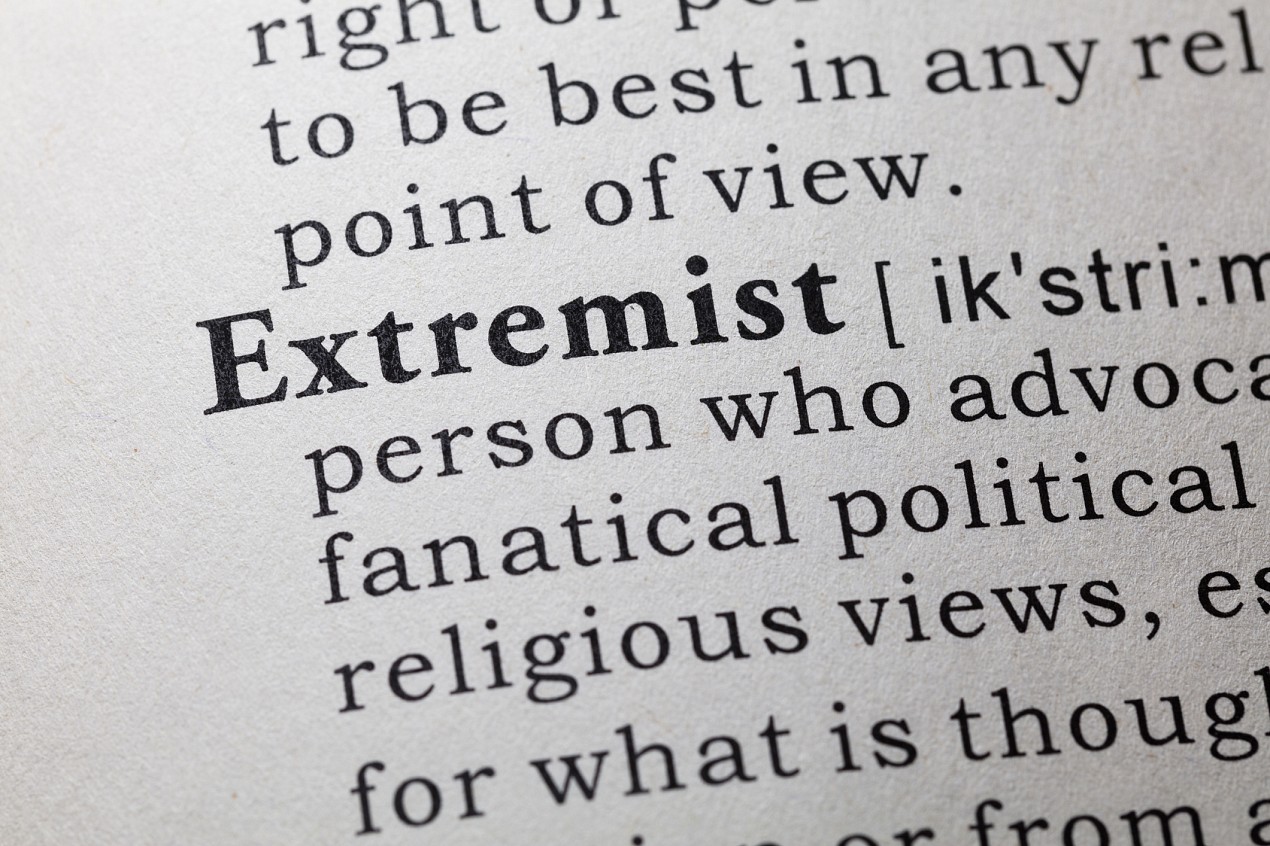Tackling Online Extremism
The Role of Teachers and Parents in Protecting Young People
Part of our Tricky Topics Series
Part of our Tricky Topics Series
As a former secondary school teacher, I have observed the wisdom and potential of young people in finding solutions to society's problems. With this in mind, I recently facilitated a workshop on extremism with 100 14-year-olds and 5 extremism experts, aiming to gain insight into their perspectives and thoughts on radicalisation, terrorism, and hate crime.
.
Radicalisation refers to the process by which an individual or group becomes increasingly extreme in their beliefs and actions. This can occur as a result of exposure to extremist ideologies or propaganda, often spread through social media or other online platforms.
Terrorism is the use of violence and intimidation in the pursuit of political or ideological goals. Terrorist acts are typically aimed at causing widespread fear and panic, and can take the form of bombings, hijackings, assassinations, or other forms of violence.
Hate crimes are criminal offenses committed against individuals or groups because of their perceived race, religion, sexual orientation, or other characteristics. Hate crimes can take many forms, including physical violence, vandalism or threats. They are motivated by prejudice and are intended to intimidate, threaten or harm the targeted group.
I co-founded VotesforSchools, a platform for teachers to host debates on tricky issues. As a former form tutor, I recognized the need for teachers to have access to content and resources, and for young people to have a voice and feel empowered. Our goal is to facilitate meaningful conversations among young people and capture their insights, which can be shared with policymakers and decision-makers.
.
One of the questions we asked during the live debate was about understanding the vulnerability to radicalisation. Our weekly debates aim to foster critical thinking, tolerance, and knowledge among young people.
.
The workshop was made possible with the support of the government's Prevent agenda, and experts were eager to engage with young people and learn from their experiences. We conducted carousel workshops and question-and-answer sessions, encouraging open dialogue and discussion.
.
To our surprise, the teenagers were not intimidated by the guests or their peers in the hall. They demonstrated a strong desire to learn and understand the issues, asking questions and engaging in the conversation. As one year 9 student said, "We are all vulnerable to extremism, not just religious or political extremism, but also to other forms of extreme behavior like drugs or gangs."
.
The workshop was a success, with deputy head Martin O'Sullivan calling it "the highlight of his career" and "educational gold". The solution to preventing radicalisation and extremism goes beyond online training for staff and reporting students. Teachers need to be equipped with content and resources to facilitate ethical debates and discussions. By fostering critical thinking and open dialogue among young people, they can become agents of change and contribute to finding solutions.

As 14-year-old Sophie said during the workshop, "We have a voice and when policymakers seek our input, we can provide different perspectives and suggest solutions. Adults cannot dictate how we should think or feel, but through open and honest discussions, we can work together towards a better future."
.
Of course, workshops may not be possible for all schools, nor should they be the end of the conversation in schools. As the world continues to grapple with the aftermath of the COVID-19 pandemic, one of the most significant consequences has been the increased exposure of children to the online world. With the closure of schools and the shift to remote learning, children are spending more time online than ever before. This increased screen time has also increased the risk of children being exposed to extremist ideologies, which can have a dangerous impact on their development.

If we want to make sure that our young people are equipped to recognise and stay safe around online extremism, we must first equip parents and teachers with the necessary knowledge and skills to help children navigate the online world safely. If the lessons we are teaching in schools are echoed at home, children are much more likely to remember them, and to go to a trusted adult if they come across content that they feel is extremist. Together, we need to educate children about online safety, monitor their online activity, and provide them with the tools to critically evaluate the information they encounter.
To this end, I would encourage school leaders to invite parents in and share with them the lessons that we are giving to young people, or to share a home-learning style sheet that helps busy parents understand the dangers and how they can help to combat them.

It is important to remember that children are not necessarily seeking out extremist content. Rather, they may be exposed to it inadvertently through algorithms that promote such content based on their previous viewing habits. Therefore, it is essential that we educate children about the way the online world works and equip them with the skills to critically evaluate the information they encounter.
At VotesforSchools we have created many lessons that discuss how the algorithm works, and how young people can stay safe online, such as our lesson on Online Toxic Support groups, which you can download here.
Trial VotesforSchools lessons
Similarly, teachers can encourage children to engage in open and honest discussions about what they encounter online. By fostering a culture of trust and creating a safe space for children to share their thoughts and feelings, teachers can help prevent the spread of extremist ideologies.
For this to work, a form of ongoing professional development is also essential for teachers - to stay up-to-date on the latest trends and developments in online extremism and online safety. Of course, this could be said for every area of the curriculum, which is why VotesforSchools lessons are created with all of the information that students and teachers will need, so that teachers do not need to be experts in order to talk about these issues with their classes.
Start the conversation with young people.
Download our free British Values assembly to empower and educate on radicalisation, extremism, terrorism, and hate crime.
DownloadPlease fill in this form to access your British Values Assembly
We are very proud to work closely with the Counter Terrorism Policing team at New Scotland Yard. We sit on their Youth Counter Terrorism Advisory Group, and have made bespoke resources with them and the team at Hollyoaks around extremism. We regularly cover topics regarding extremism, and all of our debates are mapped to show Prevent and Fundamental British values requirements.
"VotesforSchools has captured young people’s attention with engaging and thought provoking sessions to broaden their knowledge on key issues and encourage critical thinking, this is vital when building stronger communities and preventing vulnerable people being radicalised."
Lou Walker, Counter Terrorism Police